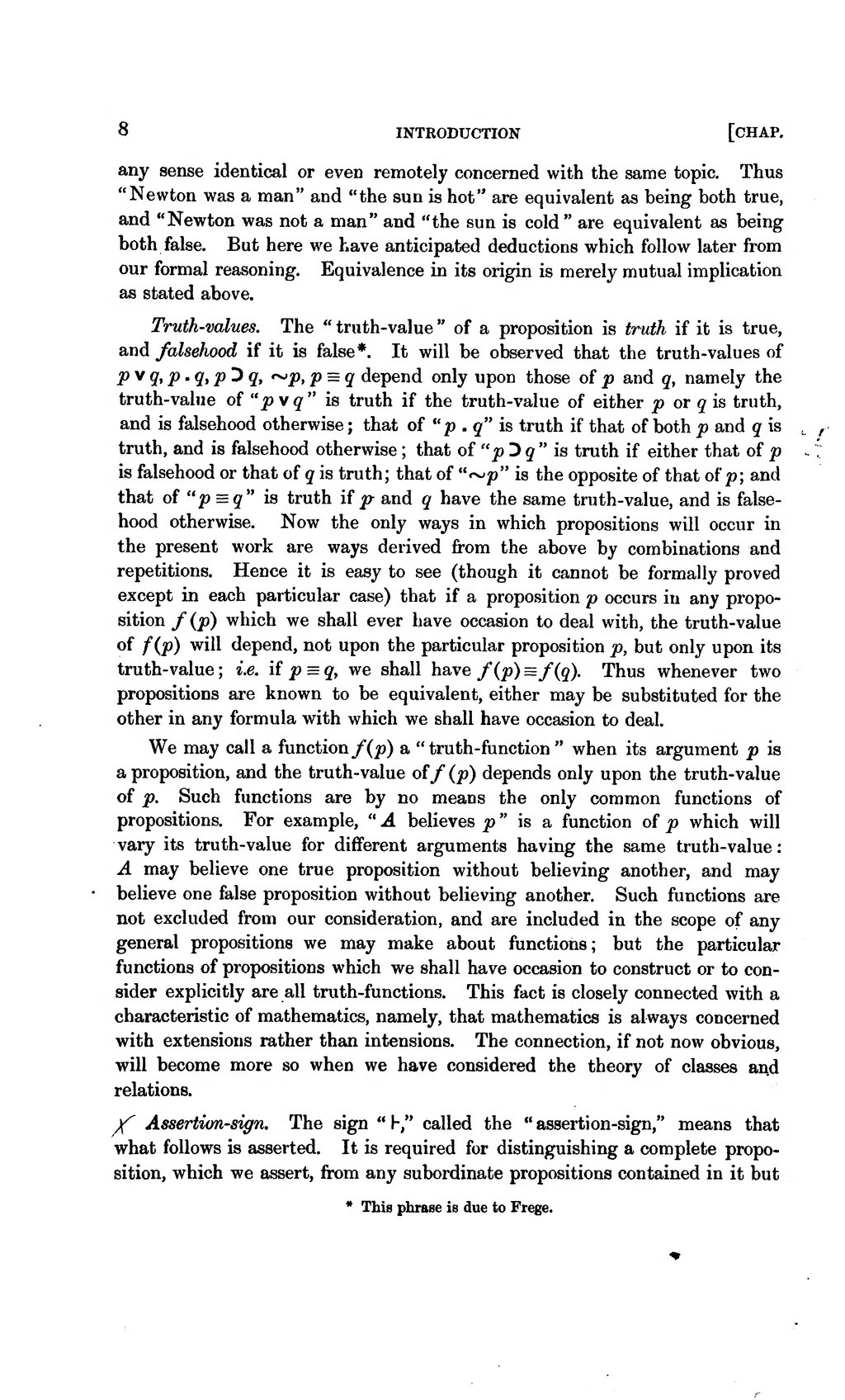any sense identical or even remotely concerned with the same topic. Thus "Newton was a man" and "the sun is hot" are equivalent as being both true, and "Newton was not a man" and "the sun is cold" are equivalent as being both false. But here we have anticipated deductions which follow later from our formal reasoning. Equivalence in its origin is merely mutual implication as stated above.
Truth-values. The "truth-value" of a proposition is truth if it is true, and falsehood if it is false[1]. It will be observed that the truth-values of , , , , depend only upon those of and , namely the truth-value of "" is truth if the truth-value of either or is truth, and is falsehood otherwise; that of "" is truth if that of both and is truth, and is falsehood otherwise; that of "" is truth if either that of is falsehood or that of is truth; that of "" is the opposite of that of ; and that of "" is truth if and have the same truth-value, and is falsehood otherwise. Now the only ways in which propositions will occur in the present work are ways derived from the above by combinations and repetitions. Hence it is easy to see (though it cannot be formally proved except in each particular case) that if a proposition occurs in any proposition which we shall ever have occasion to deal with, the truth-value of will depend, not upon the particular proposition , but only upon its truth-value; i.e. if , we shall have . Thus whenever two propositions are known to be equivalent, either may be substituted for the other in any formula with which we shall have occasion to deal.
We may call a function a "truth-function" when its argument is a proposition, and the truth-value of depends only upon the truth-value of . Such functions are by no means the only common functions of propositions. For example, " believes " is a function of which will vary its truth-value for different arguments having the same truth-value: may believe one true proposition without believing another, and may believe one false proposition without believing another. Such functions are not excluded from our consideration, and are included in the scope of any general propositions we may make about functions; but the particular functions of propositions which we shall have occasion to construct or to consider explicitly are all truth-functions. This fact is closely connected with a characteristic of mathematics, namely, that mathematics is always concerned with extensions rather than intensions. The connection, if not now obvious, will become more so when we have considered the theory of classes and relations.
Assertion-sign. The sign "," called the "assertion-sign," means that what follows is asserted. It is required for distinguishing a complete proposition, which we assert, from any subordinate propositions contained in it but
- ↑ The phrase is due to Frege.












